Mourinho will bounce back. At 56 years old, there is still more than enough time left for him to stick two fingers up at those saying he has become irrelevant at the top level. Be it a return to Inter Milan or Madrid (or even Chelsea, whisper it softly), or the Bayern Munich job that looks very vulnerable, Mourinho will still be very much in demand now he is out of work.
Also See: EPL Transfer News | EPL Fixtures | EPL Table
However, his reputation has taken its greatest dent to date. Being ushered out of the door and replaced by Ole Gunnar Solskjaer at Manchester United will have been a humbling experience for the 'Special One', who once announced that he was more concerned about bird flu than he was his Chelsea team being caught in the league.
Since bursting onto the scene with his champions league triumph at Porto, for the past 15 years, Mourinho (and his long assistant, Rui Faria) has been a game changer wherever he has landed. Chelsea, Inter Milan, Real Madrid and Chelsea again.
The cycle was simple but inevitable. He turns up, quickly assembles a title winning side, then implodes after a couple of seasons, clashing with the board before moving on, usually involuntarily. He's charismatic, argumentative, and incredibly entertaining.
The Jose that United fired a few weeks ago was a pale imitation of the one most of us are used to; he seemed to be ageing much more rapidly, he seemed much less playful in interviews, and, most crucially, his team were a long way away from delivering results on the pitch. United are the first club in Jose's career that he should honestly look back on and feel disappointed with what he achieved. These are the five major reasons why.
#5 Pep Guardiola and Manchester City (and the rest)
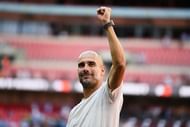
For a few seasons there, competition at the top end of the league dried up a bit. Barring Aguero’s goal in 2012 and Gerrard’s slip two years later, 2011-2017 saw a series of titles won essentially at a canter, as one team soared above the rest by early February and cruised to the title. Even Leicester won the league in the end by 10 points.
These teams also were generally humiliated every year in Germany or Spain in the Champions League semi-finals. Now though (coinciding with the new TV deals), there are at least five top quality teams competing for the title every year.
Right now, Tottenham and Chelsea are competing for a top four spot, with teams that arguably could have won titles five years ago, and Liverpool have developed arguably their greatest team since the eighties.
The biggest problem Mourinho has faced though, by far, is Pep Guardiola and Manchester City. Pep has built the first team to acquire 100 points, with arguably the greatest midfield the Premier League has ever seen. It’s easy to forget that, without that City team last season, United would probably have won the title.
#2 Years of mismanagement at United
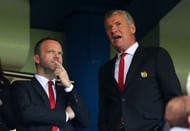
From 2011 onwards, the top clubs at the premier league are increasingly focused on commercial growth, in markets like India and China. United were trailblazers in this regard, accruing by far the greatest global support.
Ed Woodward, who had overseen commercial planning and marketing during that time, was made Chief Executive in 2013, replacing David Gill, who had been more football focused. Woodward’s tenure, whilst continuing United’s incredible financial growth, has been plagued by inexperience in actual football.
Ferguson’s recommendation of Moyes was taken immediately as gospel, without analysing what a big risk it was to appoint a man who had never won anything to take over at the biggest club on earth. Moyes first transfer window saw them wait until Maroune Fellaini had signed a new contract before signing him, costing them about 10 million pounds.
Not a single player signed under Woodward before Mourinho had taken over could be classed as an unqualified success, in a time that saw Darren Fletcher, Robin Van Persie, Rio Ferdinand, Nemanja Vidic, Patrice Evra, Shinji Kagawa and Park Ji Sung all leave the club.
Under Louis van Gaal and Moyes, the most important contributors tended to be Ferguson signings, Wayne Rooney, Michael Carrick, and David de Gea, the former two who were coming to the end of their time at United.
When Mourinho took over, an overhaul of the playing staff was desperately needed. Whilst his attempts to do so were woefully inadequate, it must be acknowledged that it was a tougher job than many appreciate.
#3 Fighting everyone
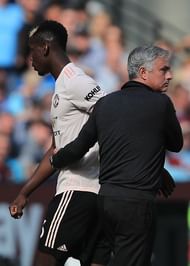
The one thing Mourinho has been totally consistent with at United has been fighting with everyone at the club. This is one way to look at his time at old Trafford:
July 2016: Took a pot shot at departing manager Louis Van Gaal, claiming he would not ‘hide behind philosophies’ and aimed only to win
April 2017: Said Luke Shaw was far behind his teammates and couldn’t even justify a spot on the bench.
January 2018: Attacked Paul Scholes, saying that all the United legend did was criticise.
April 2018: After defeat to Brighton, in which Marcus Rashford and Anthony Martial deputised for Romelu Lukaku, Mourinho said that those who asked ‘why always Lukaku?’ now had their answer. Martial reportedly asked to leave the club months later.
August 2018: Publically lampooned Ed Woodward and the United board’s failure to purchase a world-renowned centre half in the transfer window.
September 2018: Amidst tabloid rumours about a falling out between himself and Paul Pogba, decided to disprove these rumours by stripping the Frenchman of the vice-captaincy.
Since Mourinho’s dismissal, Wayne Rooney came out and claimed that everyone at the club, including the kitchen ladies, had been unhappy under him.
#2 Not fixing the defence immediately
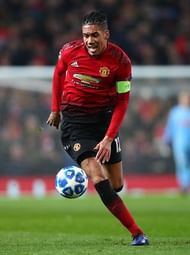
When Mourinho came to Chelsea in the summer of 2004, he bought Ricardo Carvalho and Paulo Ferreira with him from Porto, and then signed a young goalkeeper called Petr Cech, for a combined sum of about 30 million pounds (probably close to 100 million in todays market).
With John Terry and William Gallas already at the club (and Claude Makelele, whose influence has been well documented) he had a defensive unit that would concede only 15 goals in his first season, muscling their way to the title.
Arjen Robben and Didier Drogba were also obviously influential signings in attacking positions, but it was obvious Mourinho was a build from the back kind of manager.
When he returned to Chelsea, within 6 months he had signed Nemanja Matic to patrol in front of his back four, identified the on-loan Thibaut Courtois as a viable replacement for the aging Cech, and unfrozen John Terry, who it looked like was being phased out by the club. It’s strange then, how he approached United, who had exactly the kind of dodgy defence he has relished stabilising in the past.
In his two and a bit years at the club, at various points Phil Jones, Chris Smalling, Victor Lindelof, Eric Bailly, Marcos Rojo, Daley Blind, Scott McTominay and even Ander Herrera have all been considered at centre half, and McTominay (a midfielder) is the only one United fans have any enthusiasm for.
At full back, United’s options are two converted wingers, Luke Shaw (who Mourinho called fat after 6 months) and Matteo Darmian, who is somehow still a United player. If Mourinho was to publish a guide to winning the title, it would probably give advice very different to how he acted at United.
#1 His aversion to flair
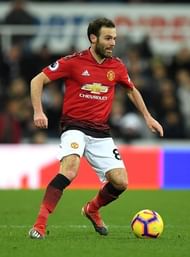
This has been a constant throughout his entire career. Joe Cole, Kaka, Mesut Ozil, Juan Mata are four footballers with almost otherworldly amounts of talent, who were fundamentally mistrusted and/or sold by Mourinho.
Joe Cole had a decent career at Chelsea, racking up a host of medals, but when you read things like Harry Redknapp’s autobiography, where he describes first-team players at West Ham asking for a 15-year-old Cole to be promoted immediately to the first team, or Steven Gerrard saying ‘anything Messi can do, (Cole) can do better’, there is a feeling of what might have been, had Mourinho not ground him down into a hard-working winger rather than the creative genius he could have been at number 10.
Juan Mata, who was Chelsea’s best player when Mourinho arrived, was sold in favour of Oscar, whose touch and creativity are nowhere near the Spaniards, but is taller and much harder working.
Jose’s flagpole signing at United was Paul Pogba, in theory a box to box midfielder, but in reality, one of the most flamboyant players we’ve seen in England. Pogba is the most talented outfielder at Mourinho’s disposal but was increasingly sidelined, Mourinho preferring the physicality of Marouane Fellaini and Nemanja Matic as his reign clattered to a halt.
Similarly, talents like Mata, Anthony Martial and 50 million summer signing Fred have all got less game time than United fans would have liked. Ander Herrera, a near constant in the United midfield, probably owed his place more to his gamesmanship and nastiness than his considerably passing ability. Perhaps, when/if Mourinho moves back into management, this aversion to flair might be something he needs to evolve.
